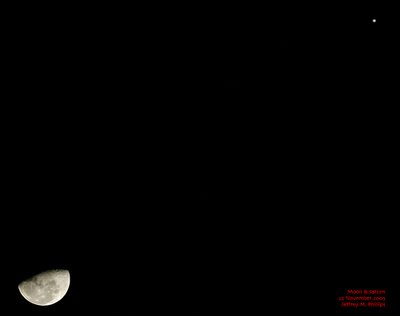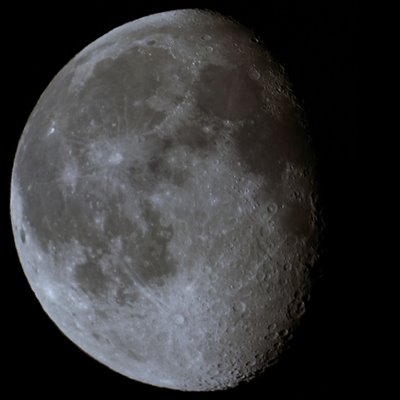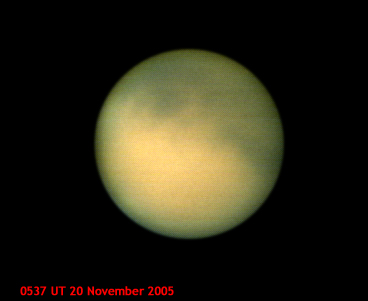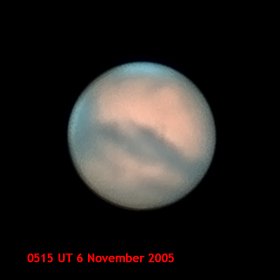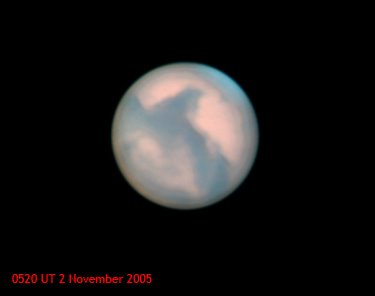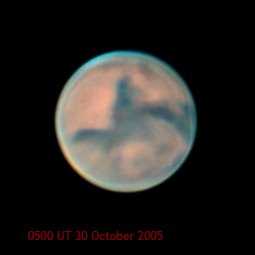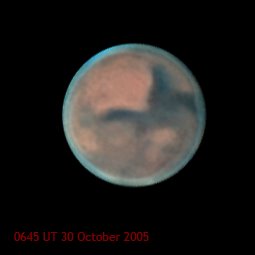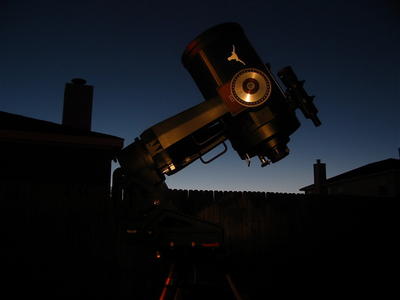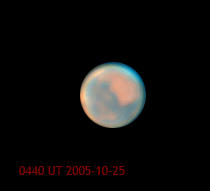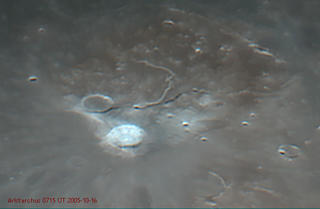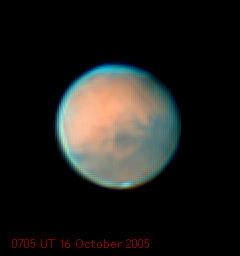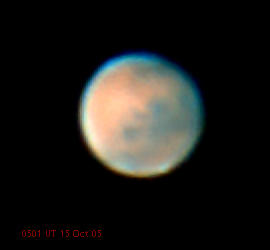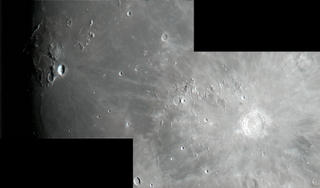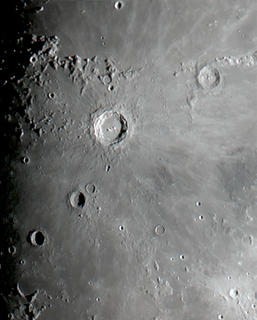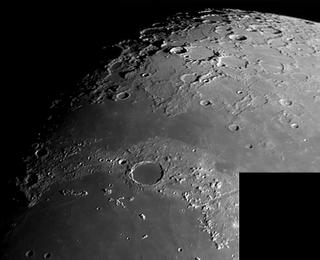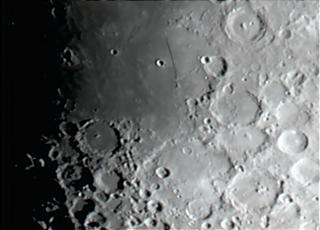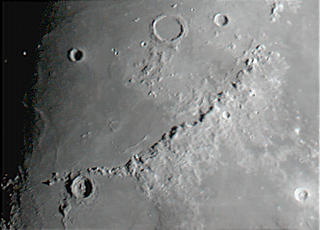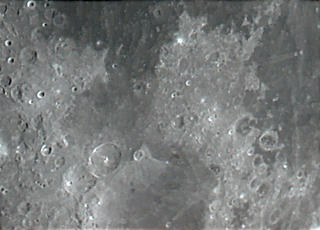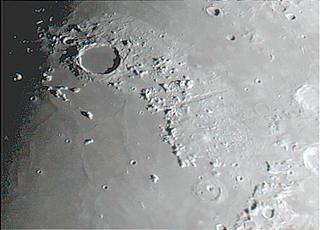
I had an opportunity last night to get my hands on Meade's new truss-tube dobsonian, the
LightBridge. Cloudy skies prevented actually observing with the telescope, so I'll just describe the mechanics.
The scope comes packaged in two large cardboard boxes, one for the base and another containing the optical tube assembly (OTA) and truss tubes. The base is typical for a commercial dob, being constructed of particle board covered with a white melamine veneer. Assembly is straightforward with the supplied allen wrench.
Meade offers the LightBridge in two variations--"standard" and "deluxe." The primary difference between the two involves the azimuth bearings in the base. The standard version consists of hard plastic pads, similar to the bearings found in other imported dobs. The deluxe version I used had a 10-inch or so roller bearing assembly sandwiched between two metal plates. The bolt holding the swivel base together has a hand knob for easy assembly, and uses a thrust washer to allow adjusting the tension of the azimuth motion. I found the motion to be smooth and precise, without the stiction I have with my smaller Hardin Deep Space Hunter. By tightening the tension, I didn't experience the loose feeling that other roller-bearing designs sometimes have.
The OTA is in two pieces, obviously. The primary mirror has a removable cover, but the secondary remains exposed. The six truss tubes are permanently attached in three sets of two. Attaching the poles to the primary tube involves fitting the flattened end of the tube into a slot and over a pin, an arrangement that worked well and felt secure. Three knobs held the tubes in place. The upper cage then attached easily with three more knobs. It wasn't immediately obvious which way to turn the upper tube, but it's correct when the seams on the two tubes align. The finished assembly felt rigid and secure. The truss assembly is open, with a shroud planned for future release. The white finish is attractive, but the flat black interior wasn't particularly black. Further, some parts of the white trim are visible through the focuser drawtube. Serious observers may want to flock the interior of the upper tube. The altitude bearings are aluminum, and rode on a felt-like material on the base. The motion was smooth, but not balanced at low elevations. Meade apparently is holding up the final release of the LightBridge so that a friction brake can be installed.
The supplied 2-inch crayford focuser felt smooth throughout its range, with only light effort required to turn the aluminum knobs. There's no finder scope, but Meade is including either a red dot finder on the standard model, or an advanced reflex finder (actually a modified rifle sight) on the deluxe model.
The optics are made in Taiwan by Guan Sheng, which enjoys a reputation for "surprisingly good" quality. The primary is center spotted--a good thing since this telescope will require collimation every time it is set up. Meade isn't including any type of collimation aid in the package, nor do they sell one themselves. The representative I spoke with uses an
Orion LaserMate.
The LightBridge is certainly attractive to look at, and I suspect it's nice to look through. I don't know how useful a truss is at the small sizes the scope is currently offered at. The lack of a finder scope or object locator makes the scope a bit more challenging to use. Still, it's a nice package and I expect it to sell well.
<edit> Read another review on the LightBridge
here.</edit>




